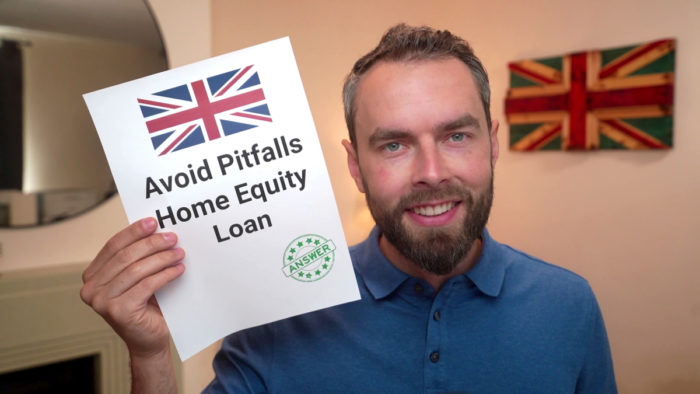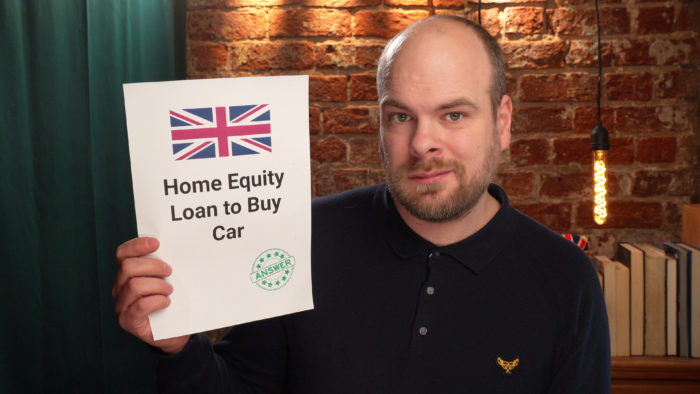Can I Sell My House with a Home Equity Loan?
Representative example: If you borrow £34,000 over 15 years at a rate of 8.26% variable, you will pay 180 instalments of £370.70 per month and a total amount payable of £66,726.00. This includes the net loan, interest of £28,531.00, a broker fee of £3,400 and a lender fee of £795. The overall cost for comparison is 10.8% APRC variable. Typical 10.8% APRC variable

Representative example: If you borrow £34,000 over 15 years at a rate of 8.26% variable, you will pay 180 instalments of £370.70 per month and a total amount payable of £66,726.00. This includes the net loan, interest of £28,531.00, a broker fee of £3,400 and a lender fee of £795. The overall cost for comparison is 10.8% APRC variable. Typical 10.8% APRC variable
Are you keen to learn about selling your house while having a home equity loan? You’ve come to the right place. Each month, over 6,900 people visit our website to understand more about secured loans.
Let’s dive into these key points:
- What a home equity loan is
- The true cost of a bad home equity loan
- The interest rate on a home equity loan
- The pros and cons of taking equity out of your house
- How to sell your house with a home equity loan still owed
We know that home equity loans can seem tricky — you may worry about whether or not you can sell your house if you still owe on your loan. But rest assured, we’re here to clear up any confusion and help you make the best choice.
Let’s get started.
Why do homeowners take out equity loans?
Some of the common reasons homeowners decide to borrow against their home equity are to consolidate debts elsewhere, buy or invest in other property, or to make home improvements.
Home improvements and renovations can be a smart reason to take out a home equity product. This is because putting the money back into the property can incre
“Can I sell my house with a home equity loan outstanding?”
You can sell a property with an existing home equity loan. However, you will be responsible to repay the loan using the sale proceeds, which may need to be sent to an escrow agent first.
It works in much the same way as selling a property with an existing mortgage balance to be paid. All debt secured by the property will need to be repaid from the sale money. Unless you have negative equity, this should not be an issue.
There is one thing to watch out for.
Your home equity loan provider may have included closing fees or early repayment charges in the terms and conditions of the loan. You should check this to ensure you understand all the financial penalties of selling your home with an outstanding home equity loan.
Lender |
APRC |
Monthly payment |
Total amount repayable |
|---|---|---|---|
| United Trust Bank Ltd | 5.99% |
£218.73 |
£26,247.92 |
| Pepper Money | 6.86% |
£220.24 |
£26,429.17 |
| Together | 6.95% |
£220.40 |
£26,447.92 |
| Selina | 7.5% |
£221.35 |
£26,562.50 |
| Equifinance | 7.7% |
£221.70 |
£26,604.17 |
| Spring | 10.5% |
£226.56 |
£27,187.50 |
| Loan Logics | 11.2% |
£227.78 |
£27,333.33 |
| Evolution | 11.28% |
£227.92 |
£27,350.00 |
Representative example: If you borrow £34,000 over 15 years at a rate of 8.26% variable, you will pay 180 instalments of £370.70 per month and a total amount payable of £66,726.00. This includes the net loan, interest of £28,531.00, a broker fee of £3,400 and a lender fee of £795. The overall cost for comparison is 10.8% APRC variable. Typical 10.8% APRC variable.
Search powered by our partners at LoansWarehouse.
Selling a house with Help to Buy home equity loan
The UK Government launched the Help to Buy Equity Loan Scheme to help first-time buyers get their foot on the ladder. It provides buyers with an equity loan up to the value of 20% of the property value to use as a deposit.
The rules state that the equity loan must be paid back within 25 years or when the property is sold, whichever comes sooner. So you can sell your home if you bought it under the Help to Buy Scheme, but you will need to repay the loan at the same time.
You should engage with Target to understand the process in full, which can be done by calling 0345 848 0235 or by sending an email to [email protected].
Can you still sell your house if you have equity release?
Can you sell a property that is included in an equity release plan? This may look like the same question again, but in reality, it’s very different.
And that’s because home equity loans and equity releases are not the same, even if they’re sometimes used interchangeably by mistake.
Equity release explained quickly
Equity release schemes are ways to borrow against the value of your home but never repay the debt until the home is sold when you:
- Pass away
- Move into long-term care
The most common type of equity release plan is a lifetime mortgage, which will offer you a loan equal to a percentage of your home equity in return for a greater percentage of home equity from the eventual property sale (it may be more valuable come that time!).
For example, you might be given a 20% equity loan of £40,000 on a £200,000 property. But when you die the lender will take 70% of the sale proceeds (£90,000 if the value remained the same).
You can never have to pay back more than 100% of the property value as long as the lender is a member of the Equity Release Council.
Home equity loans for all purposes
- Stuck paying high interest on credit card debts & loans?
- Looking to fund a home improvement project?
- Dreaming of finally taking the once-in-a-lifetime trip?

Polly
“This was by far possibly one of the nicest experiences I’ve had getting a secured loan.”
Reviews shown are for Loans Warehouse. Search powered by Loans Warehouse.
So, can you sell a home with a lifetime mortgage?
So, back to our question. Can you sell a house if you have an existing equity release scheme?
The answer is yes but the loan will need to be repaid and conditions met.
There can be heavy financial penalties and early repayment charges, which usually make it almost impossible to get out of equity release products without using up a lot or all of the sale proceeds.
It’s most common to do this when the owner has come into money at the same time, such as receiving an inheritance. Although it doesn’t exclusively happen in these situations.
Is it a good idea to take equity out of your house?
It can be a good idea to borrow against the equity in your home if you want or need to access larger amounts of credit with a competitive interest rate. But you should consider all your borrowing options before applying.
Home equity loans and HELOCs are suitable options for those who need significant credit which may not be available from most lenders – and at a competitive interest rate. You should also be aware that most of these products have a minimum loan you must apply for to use them, e.g. £10,000.
You shouldn’t borrow against your home equity without good reason. So what are the best reasons to consider a home equity loan product?



